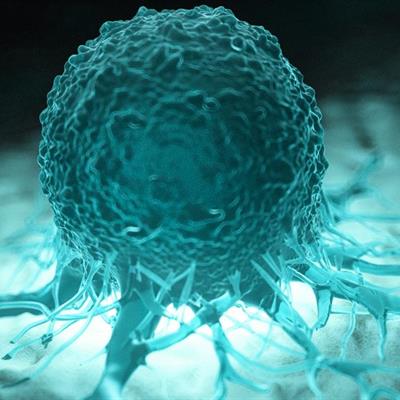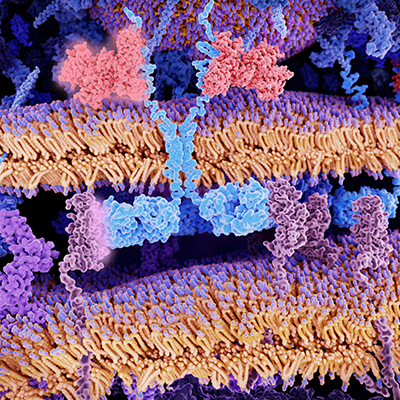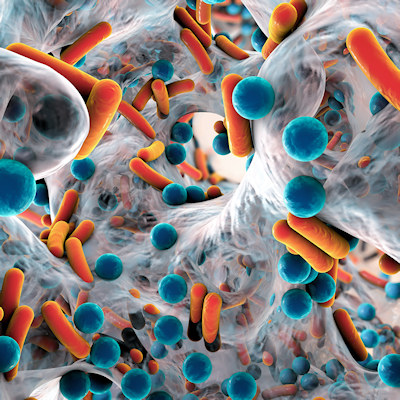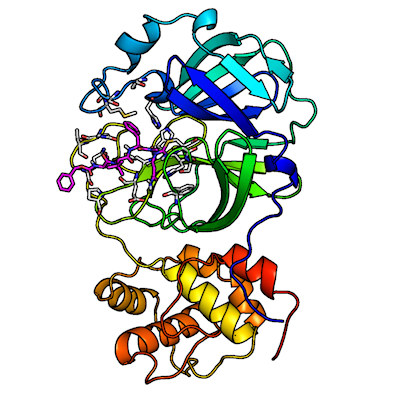November 18, 2022 -- Johns Hopkins Medicine researchers have revamped an anticancer drug to preferentially eliminate cancer cells while leaving healthy cells unharmed. The mouse study, published November 16 in the journal Science Advances, utilized a prodrug designed to release its payload into a tumor.
The glutamine-mimicking cancer drug 6-Diazo-5-Oxo-L-norleucine (DON), which inhibits glutamine-utilizing enzymes in cancer cells, previously proved robustly efficacious in people and mice. However, its toxicity to normal tissues, especially the gut, halted its development.
The researchers took advantage of cancer cells’ voracious appetite for glutamine -- an amino acid building block for proteins, lipids, and nucleotides. Rapidly growing cancer cells use large amounts of glutamine, but so do other rapidly growing cells, including gut lining cells.
The team made chemical modifications to DON to create DRP-104 (sirpiglenastat), a tumor-targeting prodrug of DON. They added chemical groups called promoieties to DON, rendering it inactive until it reached a tumor, where the promoieties were clipped off by enzymes abundant in the tumor but not in the gut.
Researchers administered both DON and DRP-104 to mice implanted with tumors. DRP-104 preferentially bioactivated to DON in tumors, but bioinactivated to an inert metabolite in the gut. Mice receiving DRP-104 had 11 times more DON in tumors than the gut. While both drugs eliminated the tumor, DRP-104 caused less gut toxicity.
DRP-104 is now in early-stage clinical trials in people with advanced solid tumors. The researchers hope to apply similar prodrug designs to other medicines.
“This preferential targeting of the payload to cancer cells is now enabling this efficacious class of drugs to be reevaluated safely in people,” Johns Hopkins professor and co-author Barbara Slusher, PhD, said in a statement.
Disclosure: Co-authors Barbara Slusher, Rana Rais, Pavel Majer, and Jonathan Powell co-founded a biotechnology company, Dracen Pharmaceuticals, which licensed DRP-104 for clinical development.
Copyright © 2022 scienceboard.net










